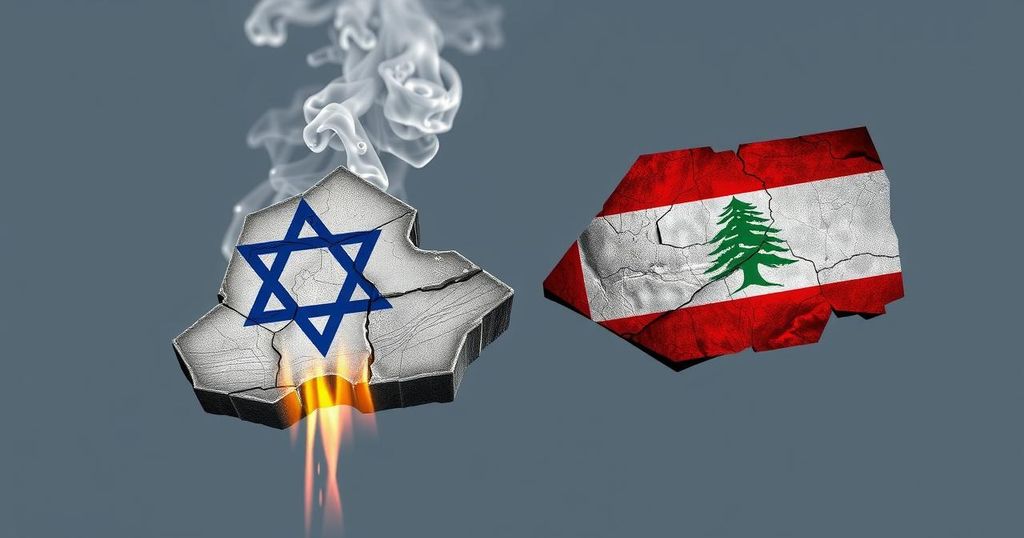Israel-Lebanon Ceasefire: Navigating the Path Towards Stability or Temporary Peace?

The ceasefire between Israel and Lebanon establishes a 60-day pause in conflict, focusing on military withdrawals and Lebanon’s political revitalization. It elucidates Israel’s strategic calculations amid shifting international dynamics and Hezbollah’s entrenchment in Lebanese politics. The agreement offers a potential pathway towards stability but faces significant challenges rooted in historical sectarian divisions.
The recently established ceasefire between Israel and Lebanon marks a critical moment in the ongoing tensions between the two nations, implementing a 60-day hiatus during which the Israeli military will withdraw from southern Lebanon, facilitating the Lebanese army’s deployment in the region and requiring Hezbollah to move its heavy weaponry north of the Litani River. These military adjustments come after intense exchanges of fire, where both sides executed strikes targeting critical infrastructure and military leaders on the opposing side.
Israel’s underlying motivation for securing this ceasefire stems from its concerns regarding U.S. diplomatic support amid threats of potential UN resolutions that could impose sanctions or condemn Israel’s actions. Prime Minister Benjamin Netanyahu faces domestic pressures from various factions, particularly those skeptical of the ceasefire, fearing it may allow Hezbollah to reorganize. Despite opposition from some Israeli military leaders, Netanyahu appears to perceive this ceasefire as a strategic opportunity, reinforced by the fresh political dynamics presented by a new U.S. administration aiming for Middle Eastern peace.
The ceasefire agreement, overseen by a five-member committee comprised of representatives from Lebanon, Israel, the U.S., France, and UNIFIL, ensures the cessation of hostilities and aims to establish a framework for peace, including the prevention of future weapons transfers to Hezbollah. This situation represents a chance for Lebanon to stabilize politically and regain control over its military security dynamics while diminishing Hezbollah’s historically dominant influence, supported by Iran’s significant investment and political ties, particularly among Shiite communities.
However, this fragile peace is challenged by Hezbollah’s entrenched political power within Lebanon, which has historically been secured through military presence and regional entanglements. The group’s acceptance of the ceasefire reflects internal pressures and the need to respond to the political shifts following the severe humanitarian crises triggered by conflict escalation post-October 2023. Moreover, these dynamics could either lead to a gradual reduction of Hezbollah’s power or potentially ignite a new cycle of violence if not managed collectively among Lebanon’s diverse communities.
Examining Lebanon’s past reveals the persistent scars left by civil war and sectarian divides, emphasizing that any lasting solution must engage all factions within society to prevent the re-emergence of conflict. The upcoming challenges lie in achieving consensus among various political groups, particularly concerning Hezbollah’s role and influence in the country, as well as addressing the allegations of foreign intervention that frequently cloud domestic discussions. Thus, the future stability of Lebanon is contingent upon carefully navigating these intricate realities to determine whether this ceasefire heralds genuine peace or simply a reprieve in the long-standing hostilities.
The Israel-Lebanon conflict encompasses decades of strife, deeply rooted in complex regional dynamics and military engagements. Since the mid-1980s, Lebanon has been embroiled in battles between Iranian-backed Hezbollah and Israeli forces, resulting in significant humanitarian crises and shifts in political power within Lebanon. Iran primarily utilizes Hezbollah as a proxy in its broader strategy against Israel, while regional rivalries and internal Lebanese political frameworks complicate peace negotiations. The ceasefire agreement reflects the urgent need for stability in Lebanon and the necessity for Lebanon to reclaim its sovereignty and political integrity amid external pressures, particularly those stemming from Iran.
In summary, the newly implemented ceasefire between Israel and Lebanon presents both opportunities and challenges for stability in the region. Although it opens the door for potential political restructuring in Lebanon and seeks to limit Hezbollah’s military capabilities, the entrenched political dynamics and historical grievances question whether this ceasefire can precipitate true peace. Lasting tranquility would require comprehensive engagement from all political factions, including Hezbollah, to avert the reemergence of hostilities and ensure the broader interests of Lebanese society. The responsibility lies with the Lebanese populace to navigate these complex circumstances and promote a stable future free from external meddling.
Original Source: www.dailynewsegypt.com








